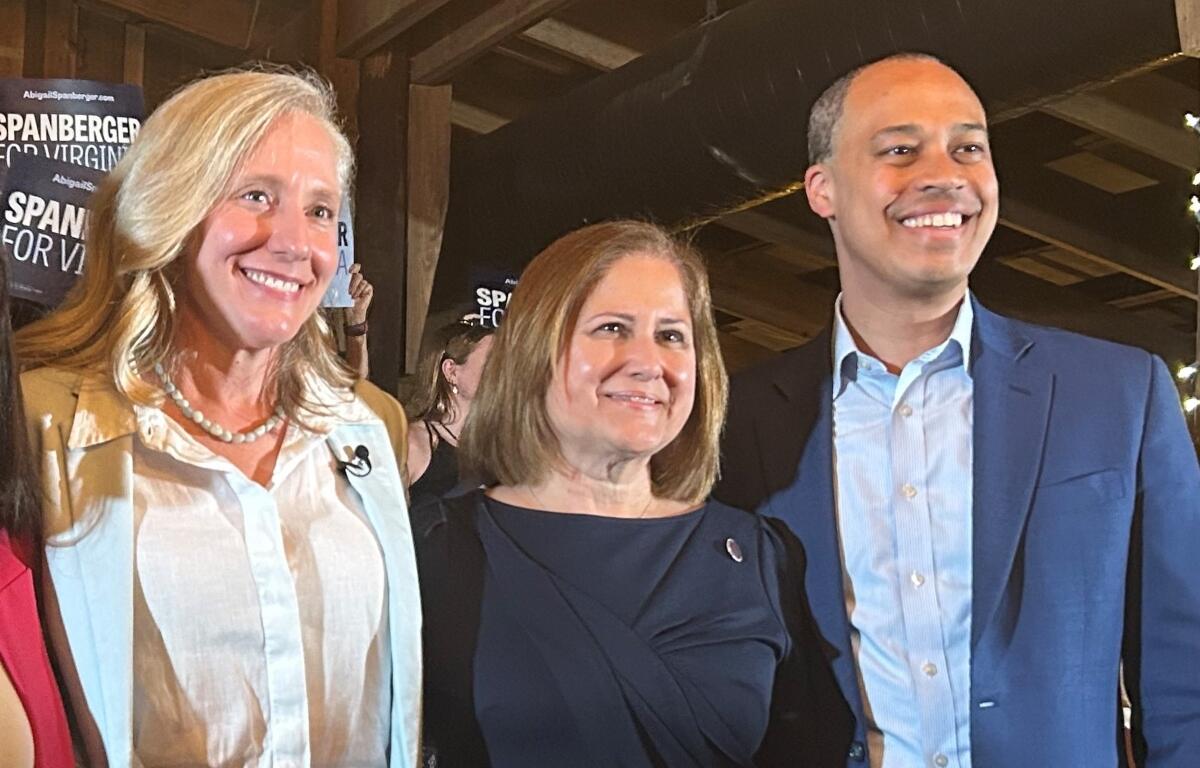CHARLOTTESVILLE, VA (CVILLE RIGHT NOW) – Ghazala Hashmi spent nearly three decades working as a college professor, first at the University of Richmond, then at Reynolds Community College.
Hashmi, now a state senator and the Democratic nominee for lieutenant governor, is the chair of the Senate Education and Health Committee.
Her Republican opponent, former conservative talk radio host John Reid, is the son of a middle school principal father and elementary school teacher mother.
Both candidates have made education a central point of their campaigns.
“I’ve been able to translate my experience and the work that I’ve been doing in the classroom into the spaces on policy to advance and improve our education opportunities here for all children,” Hashmi told Cville Right Now. “So, those have been very important concerns for me and I know we’re going to be having lots of conversations around all of these issues in the next four years.”
But while Hashmi, who has been endorsed by the Virginia Education Association, and Reid agree that education is on the minds of Virginia voters, that’s where the alignment ends.
Perhaps most notably, Reid believes spending on public education, which he said has doubled over the past six years, needs to be curtailed, while Hashmi lists funding public education as one of her top priorities.
“I unveiled a basic plan for restoring discipline and breaking up the system that is not working at the moment,” Reid told Cville Right Now. “Or at least offering alternatives to the government schools that are failing.”
Reid also supports public funds going toward private schools, part of his core belief of empowering parents. Reid said he’s open to considering multiple ways to achieve this, a list that could include vouchers for use toward private school tuition or tax breaks for families that enroll in private schools.
Critics, including Hashmi, argue those type of measures effectively give wealthy families that can already afford private school tuition a discount, while stripping funds from public education and not improving access for middle and working class families.
“We’ve seen the catastrophe that comes about in other states when we have legislative bodies that defund public education and try to funnel this money into private hand,” Hashmi said. “It is a way of funneling the public tax dollars into the hands of those who can already afford a private education for their children, and in fact it’s leaving our middle class and working families behind in a public school system that no longer can address the needs of their children.”
Reid’s “Academic Excellence Agenda,” also lists making bathrooms and locker rooms based on biological sex among its priorities, an issue that has grabbed headlines in this year’s election cycle.
His plan supports standardized testing and he has floated the idea of requiring school uniforms as a way to instill discipline in the public schools.
“I think that would take the fashion show element out of the classroom,”
Reid said. “I think it would eliminate much of the bullying that everyone tells me is very prevalent in the school system today and it would send a signal about school discipline that the name of the game has changed. If you want to express yourself in an independent way, then you should learn how to do that by delivering top-notch test scores and learn how to articulate yourself and your opinions in public, instead of trying to wear some sort of derivative T-shirt with a political message or some concert you attended.”
Education is an issue that has proven to move the need for both parties in recent years.
In 2021, Glenn Youngkin focused his gubernatorial campaign heavily on the issue of parental rights in public schools, claiming that Virginia students were being taught Critical Race Theory – an academic framework that examines how race influences American society.
While CRT is an academic theory that’s nearly 50 years old and is examined, almost exclusively, in higher education, the issue resonated with Virginia voters. Early in his tenure, Youngkin issued an executive order banning “the use of inherently divisive concepts,” in K-12 public education.
Youngkin also launched a “tip line” for people to email his administration to report violations of the order. It was shut down less than nine months later.
CRT hasn’t been a major discussion point since then, but the GOP seems poised to follow a similar strategy in this election, with Earle-Sears focusing on trans issue in schools as the key point.
It hasn’t landed with the same success.
In the most recent poll by Roanoke College, released Aug. 19, 45% of respondents said Democrats are better suited to handle the Commonwealth’s education issues, while 31% gave the nod to the Republican party.
That poll shows Hashmi with a narrow 38-35% lead over Reid – within the poll’s margin for error.
Hashmi said Earle-Sears and Reid would continue the Youngkin administration’s approach to public education.
“This was an administration that came in promising to make a significant strides and education, and instead of focusing attention on what really matters to our students and into our school communities, the administration launched immediately into culture wars,” Hashmi said. “They have sadly distracted us from the work at hand. We need to be focusing on making sure that our students know how to read and write and think effectively, that they have a capacity to perform at grade level and beyond in mathematic skills, and that they’re ready to compete with other nations that are really focused on making serious strides and education.”



